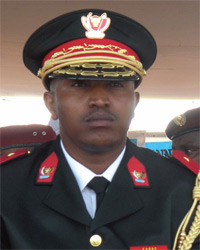
On March 31, indicted war criminal and rebel leader turned Congolese General Bosco “The Terminator” Ntaganda launched a rebellion against the Congolese state while facing the threat of arrest and prosecution for war crimes under international and Congolese criminal law.
Ntaganda’s unexpected defection followed soon after the conviction of his former rebel ally, Thomas Lubanga, for the recruitment of child soldiers by the International Criminal Court, or ICC. This conviction, coupled with a weakened Congolese government grasping for international legitimacy in the wake of fraudulent presidential elections, sparked renewed international pressure for the arrest of Ntaganda and his deliverance to the ICC on similar charges.
Upwards of 600 soldiers and senior-level commanders loyal to Ntaganda defected with him, causing the unstable Kivu region of eastern Congo to brace for the worst. Those commanders and rank and file who are loyal to him must choose between mutiny and loyalty to the state.
These recent events on the ground have presented an opportunity for the Congolese state to finally take action to arrest Ntaganda and deliver him to justice. Ntaganda’s continued presence as a warlord/general is a fundamental impediment to progress on the interconnected issues of democratization, security sector reform, justice sector reform, and mineral sector reform in Congo.
In order for this situation to result in a positive outcome, the Enough Project calls on the U.S. government and other donor nations to:
- Support and pressure the governments of Congo and Rwanda, to the fullest extent possible, to arrest Bosco Ntaganda and the senior commanders who defected with him and deliver them to justice.
- Urge the establishment of the Specialized Mixed-Courts system, which has been provided for by the Congolese government to try individuals charged with war crimes and crimes against humanity in Congo.
- Pressure the government of Congo to implement security-sector reform. This should include a focus on increasing civilian protection in areas most vulnerable to local militia movements and military operations; supporting the professionalization of Congolese troops; and establishing a credible method of payment for troops.
- Assert to the governments of Congo and Rwanda that Bosco is bad for business. Significant progress has been made in the region over the past three years in transforming the conflict minerals trade, as Rwanda and Congo have recognized that they benefit from a stable and legitimate minerals business. Ntaganda now threatens to put this progress at risk, as no company will invest in minerals from rebel-held territories.

